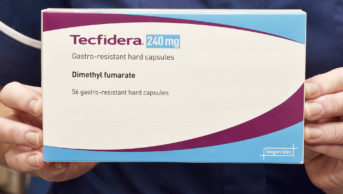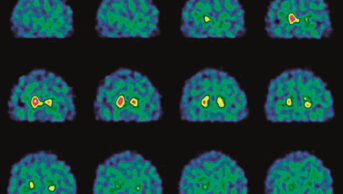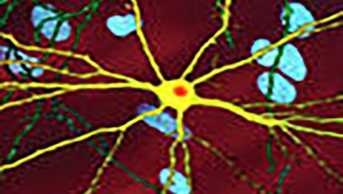
Zephyr / Science Photo Library
A drug commonly prescribed to treat dementia could help prevent falls in patients with Parkinson’s disease, according to research published in The Lancet Neurology
[1]
on 12 January 2015.
Researchers from the University of Bristol found that patients with Parkinson’s disease who were given the acetylcholinesterase inhibitor rivastigmine — usually prescribed for dementia — were 45% less likely to fall and were steadier when walking compared with those who received placebo.
“To our knowledge, this is the first trial to show that rivastigmine can improve gait stability and might reduce falls in patients with Parkinson’s disease, and has acceptable tolerability and safety consistent with previous work,” they say.
The researchers recruited 130 patients with Parkinson’s disease who had fallen at least once in the past year but who could walk 18 metres unaided; none had dementia or had ever taken an acetylcholinesterase inhibitor. Patients were randomised to receive rivastigmine uptitrated from 3mg per day to 12mg per day over 12 weeks (n=65) or placebo (n=65).
The researchers recorded gait variability, the stride-to-stride fluctuations in walking, experienced by the study participants at baseline and after 32 weeks of treatment. Participants were tested under three conditions: walking normally; walking while performing a simple verbal task; and walking while performing a more complex verbal task.
Compared with placebo, step time variability for normal walking among patients taking rivastigmine was 28% lower (P=0.002) and step time variability for walking while doing the simple task was 21% lower (P=0.045). Improvements in step time variability for the more complex task did not differ between the two groups (P=0.17).
One participant in the rivastigmine group had an extremely high number of falls (1,122 falls during the treatment period) and was removed from the analysis of fall rate. Excluding this outlier, median fall rate in the rivastigmine group was 0.50 (interquartile range 0.14–0.89), compared with 1.14 (0.27–2.6) in the placebo group.
“This is a very exciting piece of work for Parkinson’s disease patients as gait stability and falls are a huge problem for this patient group,” says Janine Barnes, a neurology specialist pharmacist at Dudley clinical commissioning group in the West Midlands.
However, the results need to be interpreted with caution, she warns. “We need a larger phase III randomised controlled trial with falls as the primary outcome before we consider rivastigmine in the management of falls in patients with Parkinson’s disease,” she adds.
Joela Mathews, a specialist neuroscience pharmacist at Barts Health NHS Trust, Royal London Hospital, says that if results from phase III trials are positive, commissioners should review rivastigmine’s use “taking into account the reduced hospitalisation of patients due to the decreased number of falls”.
“The only current effective treatment for gait instability in Parkinson’s disease is based on physiotherapy and includes dance therapy,” explains Mathews. Gait instability is often the first symptom a patient suffers from and is associated with falls that lead to hospital admissions, she adds.
The researchers say more research is needed to determine the mechanism behind rivastigmine’s effect, which they suggest is likely to have resulted from improvements in gait variability, velocity and balance.
“This gain might or might not be mediated via improved cognition, specifically improved attention to compensate for impaired gait resulting from striatal dopaminergic loss, or via a direct effect on gait,” they say.
References
[1] Henderson EJ, Lord SR, Brodie MA et al. Rivastigmine for gait stability in patients with Parkinson’s disease (ReSPonD): a randomised, double-blind, placebo-controlled, phase 2 trial. Lancet Neurology 2016. doi: 10.1016/S1474-4422(15)00389-0


